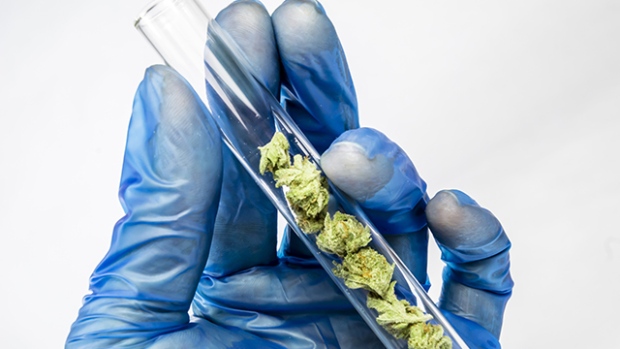Jun 26, 2018
CBD-based drug for juvenile epilepsy receives FDA approval

Other CBD-focused companies like Kalytera Therapeutics stand to benefit
The market for pharmaceutical products based on cannabidiol (“CBD”) got a big boost, courtesy of the U.S. Food & Drug Administration.
The FDA has approved GW Pharmaceuticals’ drug, Epidiolex, for the treatment of severe seizures in children with epilepsy. This is the first pharmaceutical-grade version of cannabidiol approved as a treatment for a serious and life-threatening disease.
The approval dovetails with a concerted effort by university and pharmaceutical researchers to test CBD’s effectiveness against a variety of diseases and disorders. The combination of the FDA’s approval of Epidiolex, with the ongoing scientific and clinical research on CBD, bodes well for other pharmacological targets for the cannabis-derived compound.
With analysts estimating that Epidiolex could be a US$1 billion drug for GW Pharmaceuticals, the market is beginning to give this sector of pharmaceutical research a closer look.
What investors are finding is four publicly-traded companies, including GW Pharmaceuticals, that offer exposure to pharma-grade CBD products. Of these, perhaps the most advanced is Kalytera Therapeutics Inc. (TSX.V: KALY), a company whose lead product is well along in the FDA approval process for a CBD-based drug to prevent and treat Graft Versus Host Disease (“GVHD”).
Targeting the Prevention and Treatment of GVHD
GVHD occurs when the donor cells from bone marrow transplants attack patients’ internal organs. GVHD is associated with acute and chronic illness, infections, disability, reduced quality of life, and even death.
Kalytera’s GVHD program is in an ongoing Phase 2 clinical study in the prevention of GVHD, and a Phase 2–3 pivotal, registration study is scheduled to begin later this year to evaluate CBD in the treatment of acute GVHD.
A recent market study conducted by DelveInsight Perspective estimates that the current market for a GVHD drug is north of US$400 million and could grow to US$1.3 billion by 2027. Kalytera’s President and CEO, Robert Farrell, notes, “The other three public pharma-grade CBD companies, including GW Pharma, are focused on juvenile epilepsy. Kalytera’s focus is on the prevention and treatment of GVHD.”
Kalytera is focused on developing pharma-grade CBD as a therapeutic that could effectively treat and even prevent GVHD. According to Farrell, “GVHD is a serious and life-threatening condition. Patients with grades 3 – 4 acute GVHD are often put in isolation within the ICU. It is highly unlikely that a doctor with a patient in that condition would prescribe any form of CBD other than an FDA-approved CBD drug like the one we’re developing.”
Epidiolex’s Approval is Good News for Kalytera
Thanks to the approval of Epidiolex, there is now a precedent for a pharma-grade CBD product that the FDA has approved.
They say a rising tide lifts all boats, and that definitely could be the case with the other companies developing pharma-grade CBD-based therapeutics. These companies, Kalytera included, will likely see increased investor interest.
Farrell notes, “Although Epidiolex’s approval is not a guarantee that our pharma-grade CBD formulation will be approved, the fact that the FDA has now found Epidiolex to be safe and effective could help smooth the road for our GVHD-focused program.”
Kalytera has received two U.S. patents covering the use of CBD in the prevention of GVHD. It also has four orphan drug designations for the treatment and prevention of GVHD in the U.S. and Europe.
With an Earlier Stage Pain Management Program in Development
And the company’s CBD-focused GVHD drug isn’t the only program in Kalytera’s stable.
At an earlier stage of development is a novel cannabinoid-based compound focused on the treatment of acute and chronic pain. Kalytera is working with a CBD compound called desoxy CBD that, when wedded to an over-the-counter medication, could provide the company with a unique, patentable application for pain relief.
The company is bent on creating a product that is an effective pain management drug, without the risks of addiction or respiratory suppression that exist with opioid analgesics.
In localized centres of inflammatory pain, the body produces a hormone-like compound called prostaglandin. Prostaglandin can block the pain reducing effects of desoxy CBD. By combining desoxy CBD with naproxen, Kalytera is trying to create a novel cannabinoid compound for the treatment of acute and chronic pain. Farrell comments, “By putting these two compounds together, we are developing a medically and commercially viable pain management product.”
A Value-Based Play on CBD’s Pharma Potential
For now, though, Kalytera’s primary focus is on developing its GVHD product, and with the approval of GW Pharmaceuticals’ CBD-based treatment for juvenile epilepsy brightens the smaller company’s prospects considerably.
GW Pharmaceuticals currently has a market cap in excess of US$4 billion. By contrast, Kalytera has a market cap just shy of C$30 million. And while its initial product is targeting a smaller market than Epidiolex, proof that CBD is safe and effective for juvenile epilepsy should give investors hope that Kalytera’s (TSXV: KALY) CBD therapeutic may receive approval as well.